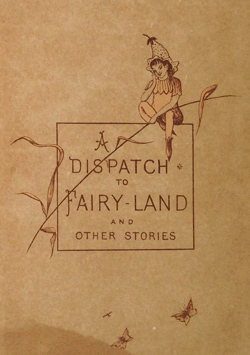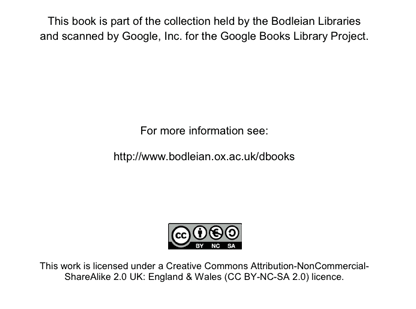
We happen to have a physical copy of this book, given to a family member back in 1885.
It has been digitized by Google and the Oxford University Bodleian Library, but they are perpetrating a copyfraud on the book, acting as if they were the author, restricting access and licensing it under a CC-BY-NC-SA licence.
This is illegal and it's another small attack on public domain by a cultural institution.
(also, the colors in their scan are either wrong, bad or lost, depending on the page.)
So I decided to do a good deed this weekend, scan the book quickly, free it, and share the story with anyone who cares about the cultural digital commons.
Thanks to the insignicant cost of digital distribution, I can apparently do by myself what a great library and an internet giant can't manage together: really give back this book, as part of public domain.
Here are the files : dispatch-to-fairy-land.pdf and dispatch-to-fairy-land.zip (jpeg files)
The scan is a quick scan using an iPhone 5 and a ScanBox with the natural light of the sun. That basic, amateurish setting gave me much better colors and contrast than the Google scan, which is optimized for text OCR.
If someone use the jpg files to crop and clean the scans, please contact me here : http://juliendorra.com/contact or on twitter : http://twitter.com/juliendorra so we can share a more polished version.
A couple of days ago, we were moving things around in the house, and we put our hand on this 19th century children book. It was given to a family member back in 1885, as the hand-written dedication shows.
So I googled around and found it on Google Books. Good, I will be able to point people to this quite charming old book online, right?
No, weird: the book is not accessible in full on Google Book, and its page reference the page “Why some books aren’t available in full-text” explaining that “our partners decide how much of the book is browsable” but also that public domain books are freely downloadable. I’m not a copyright lawyer, but it seems to me that a 1883 anonymous book is very, very probably public domain.
What probably happened is that the Oxford University library gave the book to Google to scan, but apparently asked Google not to let people download it from Google. Or something else. Who knows? There is no way to know the exact status if the book, from Google perspective..
(Oh, and when you spot a blatant catalog error –no, “Dispatch” is not the author name– there’s seems to have no way to fill a bug report on Google Book. Not clever.)
So let’s go and try to find “A Dispatch to Fairy-Land” on the Oxford library site (easier via Europeana, because nothing seems publicly indexed from the Oxford University, and Google Books doesn’t link back to the source.)
Ah, here is the catalog page on Europeana
From there a redirect can bring you to the actual Oxford University Library catalog page.
Note that there is the same catalog error on the author’s name there. It should be “anonymous”.
You can also directly download a full PDF from either source.
So you say, yeah! All is well! Here it is in full.
But, wait, what? This PDF, a purely mechanical scan, is put under a CC-BY-NC-SA license.

In other words, the Oxford University Bodleian Library is using copyright licensing to tell us how we should use or not this public domain book.
Let's say it, once again: you can't license a work when your are not the author. That much, I know on copyright and author’s right.
A library buying a book and putting it into storage for 130 years is doing a great job. But it doesn’t make it the author of the book.
Would the library dare license a non-public domain book, where for example the author is still alive or there is still rights ? Certainly not.
But in this case, we can assume that the Oxford University Library knows the book is public domain, and then knowingly licence it as if all of the sudden, it acquired some author’s right on it.
The weirdest thing is that such a Creative Commons licence bind us to mention the author, not the library. Or would bind us, if it was the author licensing the work. It's not.
In the pro-commons circles, we have a name for that: copyfraud. Or the act of creating a fake copyright on top of a public domain work which you happen to have in your possession (physically or digitally).
Sadly, it’s done a lot by the very same institutions that should be first in line to protect public domain, under attack for many years now.
sunday, september 22th, 2013